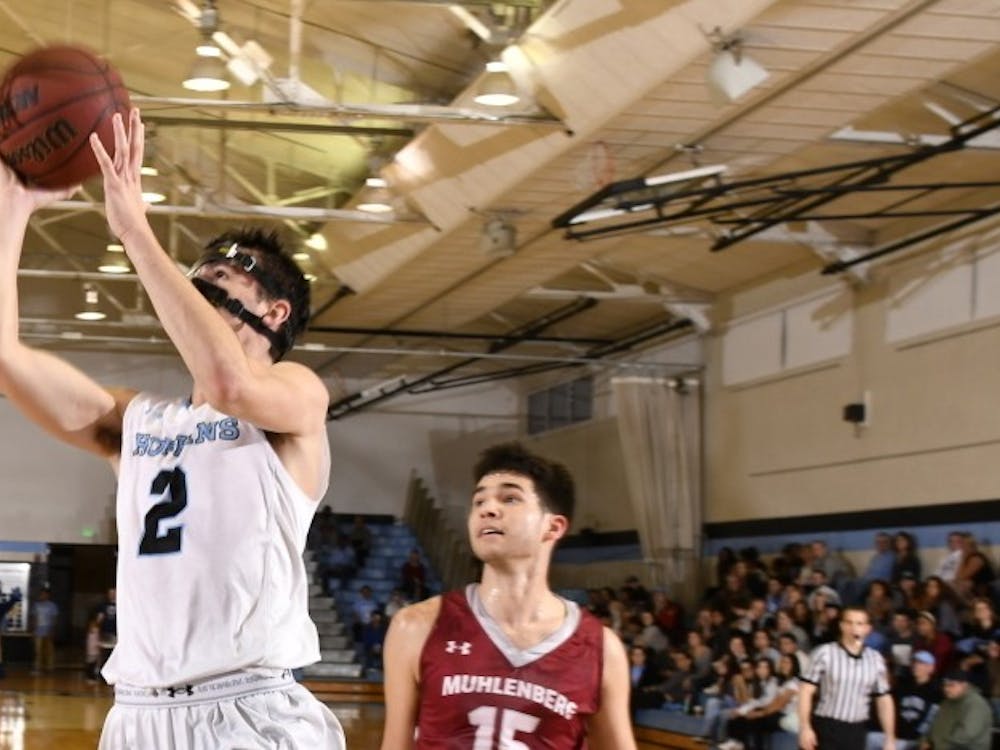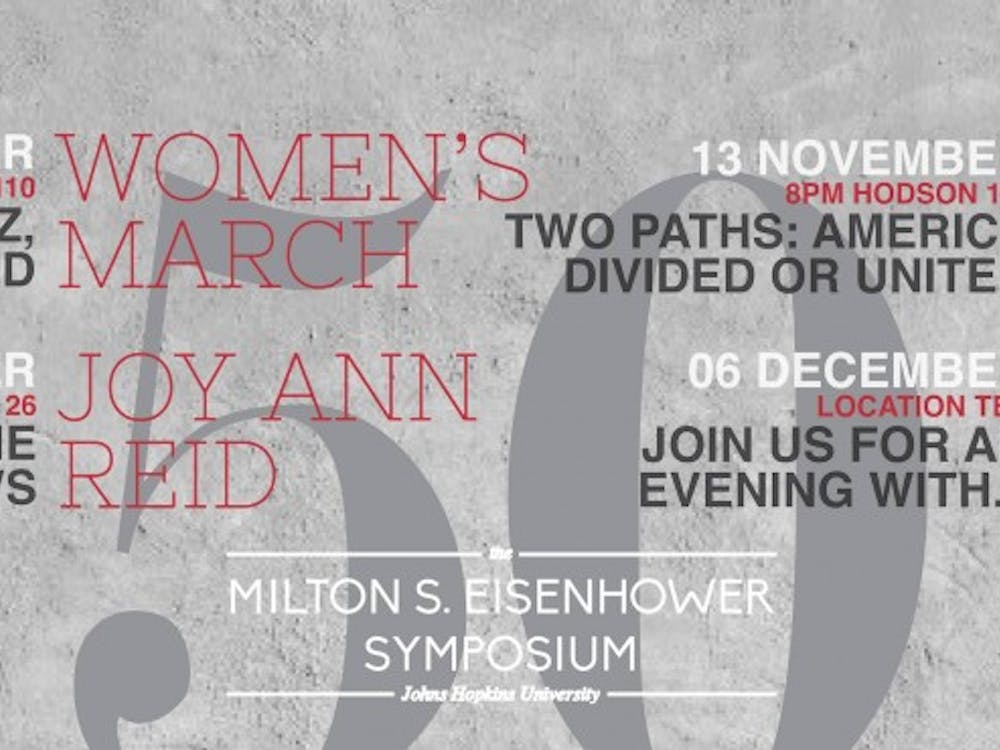Journalist Laura Ling discussed her imprisonment in North Korea and her career in the media for the penultimate Milton S. Eisenhower (MSE) Symposium event of the year in Shriver Hall on Saturday.
Ling, who currently serves as a host and reporter on the E! Network, has previously worked for CNN, The Oprah Winfrey Show and Current TV.
Ling highlighted her experience reporting on North Korean refugees who had escaped to China for Current TV back in 2009.
On March 17, 2009, Ling and other journalists crossed the Tumen River — the border between China and North Korea — to take pictures on North Korean soil. When crossing back to Chinese territory, North Korean soldiers appeared and started to yell and chase after them.
Ling and her party successfully made it back onto Chinese soil, but the North Koreans kept up their pursuit. Ling was grabbed, beaten and dragged back onto the ice of the river. She recalled telling Hopkins alumnus Mitch Koss, her producer and cameraman, that she thought she was going to die.
Ling recounted that a soldier hit her in the head with the butt of his rifle and that she blacked out. Ling and Euna Lee, another captured journalist, were then brought to various North Korean military bases before being jailed. Ling faced interrogations for possible espionage activities and accusations of undertaking covert actions against North Korea for the subsequent five months.
On June 8, 2009, Ling and Lee were sentenced to twelve years of hard labor, two for illegally trespassing into North Korea and 10 for illegal reporting. North Korea’s labor camps are notoriously harsh in their treatment of detainees. Ling recounted how one her guards seemed truly shocked and saddened by the sentence. She emphasized that moments of compassion like these were so significant to her.
“Laura,” a guard said, “always have hope.”
American outrage grew after the two journalists’ sentencing. In August 2009, former U.S. President Bill Clinton brokered their release. Clinton met with North Korean leader Kim Jong Il on Aug. 4. Kim pardoned the two journalists following negotiations the next day, and they were released immediately.
Ling described her conversation with Clinton returning to the U.S.
Clinton posited that Kim was receptive to a meeting with him and to his arguments for the journalists’ release because he called Kim after his father Kim Il Sung’s death to offer his condolences.
Ling underscored this example of the impact one small, compassionate act could have.
“Though I do have to say, it is a little odd to be known as one of the women Bill Clinton rescued from North Korea,” Ling said.
Ling spoke about her high school and college experience to directly address the Hopkins student body.
She spoke about how her high school newspaper experience sparked her passion for journalism.
“I felt proud that I had somehow informed my friends and classmates about an issue that was affecting their lives,” Ling said. “That’s when I realized the impact that writing and journalism can have to help open people’s eyes to what’s going on in the world.”
After high school, Ling attended the University of California, Los Angeles, or, as Ling named it, the University of Caucasians Lost Amongst Asians. Her exposure to the great diversity of students on the UCLA campus inspired her desire to travel, experience different cultures and meet people from foreign countries.
Ling has also reported on varied topics from drug-related violence in Mexico to protests against the military junta in Myanmar.
In 2009, Ling reported on drug violence in Northern Mexico. She showed footage of one night during which she and her crew arrived at the scene of a recent assassination in the parking lot of a supermarket. Ling was visibly shaken by the sight of two bodies torn apart by gunfire in the front seats of a sedan, but she explained that her exposure to continuous violence hardened her.
Ling’s talk was well received among the audience.
“It gave me a new perspective about what the life of a journalist is like and what dangers they face,” sophomore Thomas Mi said. “[I would have wanted to hear] a little bit more detail about the conditions she saw. She definitely talked about how it made her feel, but it would’ve been nice to hear exactly what she went through."




